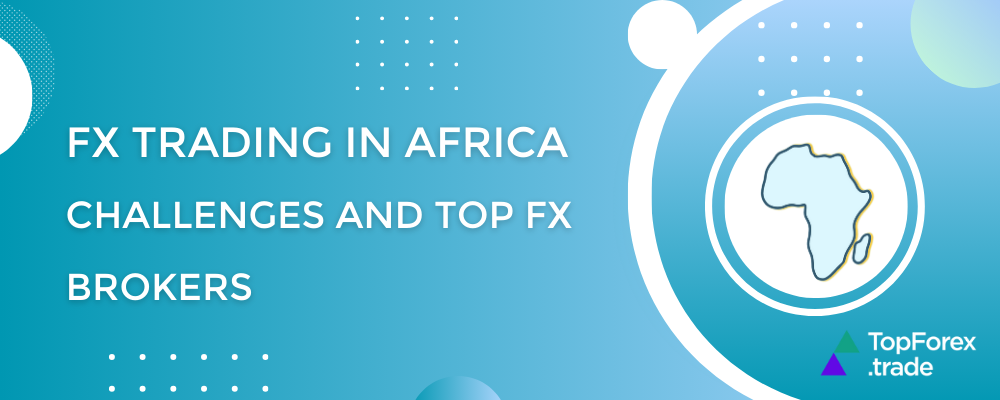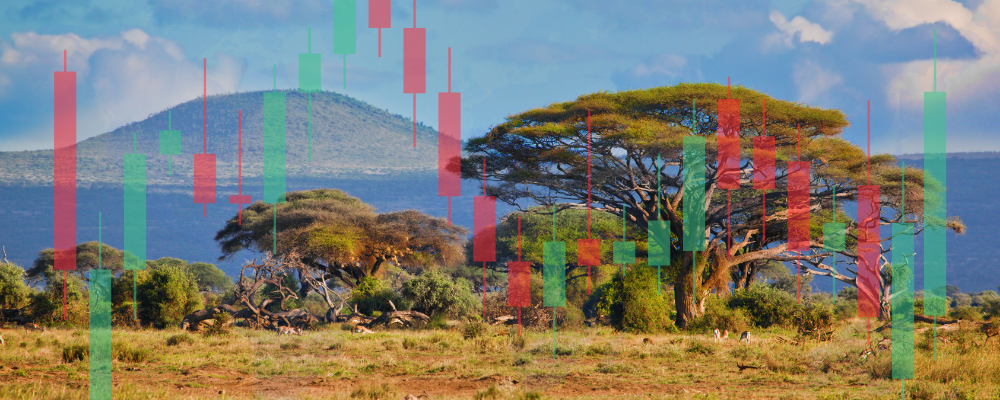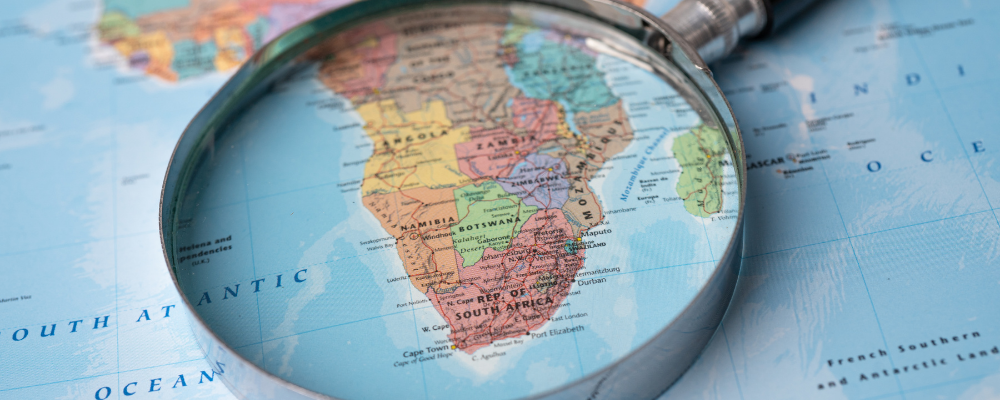Forex trading in Africa: how to avoid losing money

Picture this: A young university graduate in Lagos wakes up, checks his phone, and within minutes, profits from the rise of the Euro against the Dollar. Meanwhile, a stay-at-home mom trades gold during her free time in Nairobi, earning more than her previous 9-to-5 job.
This isn’t a fantasy – it’s the reality for thousands of Africans diving into forex trading, the world’s largest financial market. With over $6.6 trillion traded daily, forex is no longer just for Wall Street bankers. Africa’s tech-savvy youth are rewriting the rules, turning smartphones into trading terminals and mobile money into investment capital.
But is this the path to financial freedom or another risky gamble? Let’s dive in.
Why Forex is becoming popular in Africa (and why some governments are nervous)

1. The smartphone trading revolution
Gone are the days when trading required a desktop computer and a fat bank account. Today, an Android phone and a 10$ deposit can get you started. Apps like MetaTrader 4 (MT4) and trading bots have made forex accessible to anyone with an internet connection.
2. The unemployment escape hatch
With youth unemployment as high as 60% in some African countries, forex trading has become the side hustle of choice. Stories of traders turning 100 into 1,000 in weeks spread like wildfire on WhatsApp groups and TikTok.
3. The currency srvival game
Africans know currency volatility better than anyone. When the Naira crashes or the Rand tumbles, forex traders don’t just watch—they profit. Some use trading as a hedge against inflation, while others chase the adrenaline of fast-moving markets.
FX trading challenges in Africa
| Challenge | Why it’s dangerous | How to avoid it |
|---|---|---|
| Unregulated brokers | May steal deposits or manipulate prices | Only use brokers regulated by FCA, CySEC, or FSCA |
| Payment problems | Banks blocking transfers to forex brokers | Use e-wallets (Skrill, Neteller) or crypto transfers |
| Leverage traps | 1:1000 leverage can wipe accounts fast | Stick to 1:30 leverage or lower when starting |
| Fake gurus | Selling “guaranteed profit” scams | Avoid anyone promising easy money – real trading takes skill |
| Internet issues | Power cuts disrupting trades | Use a UPS backup and mobile data as a secondary |
Best FX trading instruments for beginners in Africa
🚀 Start with these (safe and profitable)
| Instrument | Why it’s good | Best time to trade | Risk level |
|---|---|---|---|
| EUR/USD | Most liquid pair, tight spreads | London/NY overlap (2 pm-5 pm WAT) | Low |
| USD/JPY | Stable, follows economic news | Asian session (1am-10am WAT) | Low |
| Gold (XAU/USD) | Popular hedge against inflation | All day, best during US hours | Medium |
| BTC/USD | Most established crypto, high liquidity | 24/7, but most volatile 8 pm-12 am UTC | High |
| ETH/USD | Smart contract leader, institutional interest | 24/7, follows BTC trends | High |
| Stablecoin Pairs (USDT/USDC) | Low volatility crypto entry | 24/7, minimal price fluctuation | Very Low |
💣 Avoid these (unless you like drama)
| Instrument | Why it’s risky | Better alternative | Risk level |
|---|---|---|---|
| Exotic pairs (USD/ZAR) | Huge spreads, unpredictable | Stick to majors first | Extreme |
| Meme coins (SHIB, DOGE) | Pump-and-dump schemes | Trade BTC/ETH instead | Extreme |
| Oil futures | Sudden crashes from news events | Trade gold instead | High |
| Small-cap altcoins | Liquidity issues, scams | Stablecoin pairs if must trade crypto | Extreme |
Pro Tip: If you’re new, stick to EUR/USD for at least 3 months before trying anything fancy.
How to start FX trading in Africa (without losing your shirt)

Step 1: The demo account hustle (no real money yet!)
- 90% of new traders lose money in the first 3 months.
- Solution? Trade a demo account until you’re consistently profitable.
Check out: Top 5 Forex brokers with demo accounts: review of the best trading platforms
Step 2: Pick the right broker
⚠️ Red flags to watch for:
- Promises of “guaranteed profits”
- No proper regulation (FCA, CySEC, FSCA)
- Difficulty withdrawing money
✅ Good brokers for Africa:
- Exness (Fast withdrawals, accepts crypto)
- XM (Great for beginners, low minimum deposit)
- AvaTrade (Best for serious traders)
Step 3: The $10 challenge (yes, you can start small!)
- Deposit just $10 and aim for 1-2% daily growth.
- This teaches discipline – overtrading kills accounts!
This can help: How to start small and grow your FX trading deposit: tips, strategies, and Top FX brokers
Step 4: The emotional control test
- If you panic when losing 5$, you’ll blow 5,000$ later.
- Rule: Never trade angry, tired, or greedy.
FX brokers in Africa
Forex trading is rapidly growing across Africa, and finding the right broker is essential. Here are 5 trusted brokers that welcome African traders, ensure easy deposits and withdrawals, and offer competitive trading conditions:
Exness
✅ Best for: Instant withdrawals & crypto trading
✅ Regulation: FCA, CySEC, FSCA
✅ Key features:
- Withdrawals processed in seconds
- Accepts Bitcoin, USDT, and mobile money
- Low $10 minimum deposit
Perfect for: Traders who value fast access to funds
XM Group
✅ Best for: Beginner education
✅ Regulation: ASIC, CySEC, FSCA
✅ Key features:
- Free daily market analysis
- Micro accounts from 0.01 lots
- Negative balance protection
Perfect for: New traders building skills
HF Markets (HFM)
✅ Best for: African payment solutions
✅ Regulation: FCA, CySEC, FSCA
✅ Key features:
- Supports M-Pesa, Airtel Money
- Copy trading available
- 24/5 multilingual support
Perfect for: Traders needing local banking options
AvaTrade
✅ Best for: User-friendly platforms
✅ Regulation: FSCA, ASIC, CySEC
✅ Key features:
- Simple mobile app interface
- Fixed and floating spreads
- Automated trading tools
Perfect for: Casual and new traders
BlackBull Markets
✅ Best for: Institutional-grade trading
✅ Regulation: FMA, FSA
✅ Key features:
- Prime liquidity access
- Advanced charting tools
- ECN account available
Perfect for: Serious and professional traders
Related articles:
Forex trading in Africa - FAQ